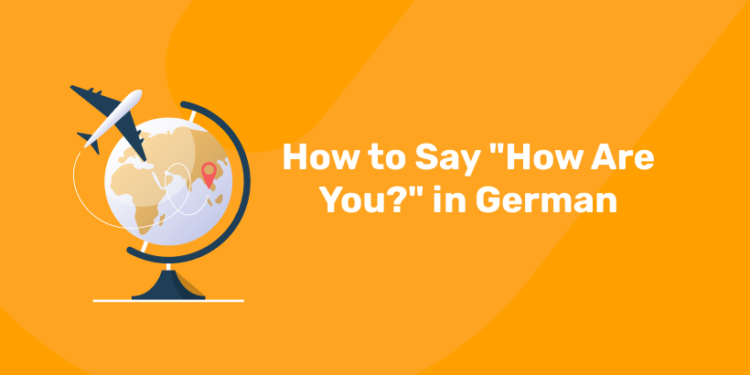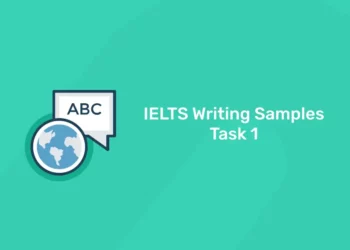Table of Contents
You need to master the basics of a new language and greetings are the foundation of any conversation. One of the most common phrases you’ll need in German is “How are you?” This connects you with others and is a polite way to show you care. Whether you’re planning a trip to Germany, learning for personal growth or to expand your language skills, you need to know how to say “How are you?” in German.
Introduction
Learning a new language opens up new cultures and experiences. When it comes to German, one of the first phrases you should learn is “How are you?” This simple question is key to building relationships and starting conversations. But, as with many languages, German has many ways to ask this question depending on the situation and formality. In this post we’ll go deep into the different ways to ask and respond to “How are you?” in German, formal alternatives and tips on how to practice these phrases. We’ll also introduce you to an easy way to learn German with Entri’s online course.
The Basics: How to Say “How Are You?” in German
1: How do you say "Good Morning" in German?
Let’s start with the most common and simplest way to ask “How are you?” in German:
1. Informal: “Wie geht’s?”
“Wie geht’s?” is the informal, short version of “Wie geht es dir?” which means “How are you?” This is used with friends, family and peers. It’s casual and the go-to phrase when speaking to people you know.
If you’re in a situation that requires a bit more formality you can use “Wie geht es Ihnen?” This uses “Ihnen” the formal version of “you” in German so it’s suitable for strangers, elders or anyone in a formal setting.
Formal alternatives to “How Are You?” in German
In professional or formal situations using more polite phrases can make your German language skills more impressive. Here are some formal alternatives you can use to express the same thing in a more elegant way:
1. “Wie befinden Sie sich?”
This means “How are you feeling?” and is a more polite way to ask about someone’s well-being. It’s useful in formal or business situations.
2. “Wie steht es um Ihre Gesundheit?”
Translated as “How is your health?” this is a great way to ask about someone’s well-being especially if you’re concerned about their health. It’s a polite and thoughtful way to ask “How are you?” in a formal situation.
3. “Alles in Ordnung bei Ihnen?”
Meaning “Is everything alright with you?”
How to Answer “How Are You?” in German
Knowing how to ask “How are you?” is only half the battle; you also need to know how to answer. Here are some common answers, from positive to neutral to negative, to use depending on your mood and the situation:
1. Positive Answers
- “Mir geht’s gut, danke!” I’m doing well, thank you! This is polite and positive.
- “Es geht mir gut.” I am well. A bit more formal.
2. Neutral Answers
- “Nicht schlecht, danke.” Not bad, thank you. You’re okay, but not super excited.
- “Es geht.” It’s going. Just okay.
3. Negative Answers
- “Mir geht’s nicht so gut.” I’m not doing so well. If you’re not feeling great.
- “Es könnte besser sein.” It could be better. Things aren’t going as well as you’d like.
How to Ask “How Are You?” in Specific Situations
Different situations require different greetings. Let’s look at how to ask “How are you?” in different contexts:
1. Business
In a professional setting you would use “Wie geht es Ihnen?” or “Wie befinden Sie sich?” to greet colleagues or clients. This is formal and polite.
2. Meeting Strangers
When meeting someone for the first time, especially in a formal situation, “Wie geht es Ihnen?” is the safest choice. For people you don’t know well.
3. Everyday Conversations
With friends or family “Wie geht’s?” is the casual way to ask how they are. It’s informal and friendly, so perfect for everyday use.
German Greetings Practice: Tips and Exercises
To become fluent in any language consistent practice is key. Here are some tips and exercises to help you master German greetings:
1. Practice with a Language Partner
Find someone who is also learning it or a native speaker to practice with. Role-playing different situations can help you get used to asking and answering “How are you?” in different contexts.
2. Flashcards
Create flashcards with German greetings and their English translations. Review these daily to commit them to memory and to be able to recall them in conversations.
3. Make it a Part of Your Daily Life
Make a habit of greeting people in German whenever you can. Whether it’s a quick “Wie geht’s?” in the morning or “Wie geht es Ihnen?” in an email, practicing these greetings regularly will make them second nature.
4. Watch German Media
Watching native speakers through TV shows, movies or YouTube videos can really help your understanding and pronunciation. Pay attention to how characters greet each other and try to imitate them.
5. Language Learning Apps
Apps like Entri have structured lessons on German greetings and other basics. They have interactive exercises to help you practice what you’ve learned. Great for beginners and advanced learners alike.
6. German Language Forums
Join online forums or communities where German is spoken. Talking to other learners or native speakers will give you real life practice and build your confidence.
7. Record Yourself Speaking
Record yourself saying different German greetings and listen to your pronunciation. Over time you’ll see improvement in your fluency and confidence.
Learn German with Entri
Learning a new language can be tough but with the right tools it can be super rewarding. If you want to become serious about German, a structured course will make all the difference.
Entri has a comprehensive Learn German course for beginners and those who want to improve their basics. The course covers vocabulary, grammar, conversation skills including “How are you?” in German. With interactive lessons, quizzes and exercises Entri’s course makes learning German fun and easy.
By enrolling in Entri’s German course you’ll get access to expert guidance and loads of resources to practice and improve your language skills. Whether you’re planning a trip to Germany, looking to advance your career or just want to learn a new language Entri has got you covered.
Quiz: How to Say “How Are You?” in German
Question 1:
What is the most common way to say “How are you?” informally in German?
- a) Wie geht es Ihnen?
- b) Wie befinden Sie sich?
- c) Wie geht’s?
- d) Wie steht es um Ihre Gesundheit?
Answer: c) Wie geht’s?
Question 2:
Which phrase would you use to ask “How are you?” in a formal business meeting?
- a) Wie geht’s?
- b) Alles in Ordnung?
- c) Wie geht es Ihnen?
- d) Es geht mir gut.
Answer: c) Wie geht es Ihnen?
Question 3:
How do you respond to “Wie geht’s?” if you’re doing well?
- a) Mir geht’s schlecht.
- b) Es könnte besser sein.
- c) Mir geht’s gut, danke!
- d) Nicht schlecht.
Answer: c) Mir geht’s gut, danke!
Question 4:
What does “Wie befinden Sie sich?” mean in English?
- a) How are you feeling?
- b) How is your family?
- c) Where are you?
- d) How is your work?
Answer: a) How are you feeling?
Question 5:
Which phrase is more formal: “Wie geht es Ihnen?” or “Wie geht’s?”?
- a) Wie geht’s?
- b) Wie geht es Ihnen?
Answer: b) Wie geht es Ihnen?
Question 6:
If someone asks “Wie steht es um Ihre Gesundheit?”, what are they asking about?
- a) Your job
- b) Your health
- c) Your location
- d) Your mood
Answer: b) Your health
Question 7:
What is a casual way to say “It’s going okay” in German?
- a) Es geht.
- b) Mir geht’s schlecht.
- c) Alles in Ordnung.
- d) Es geht mir gut.
Answer: a) Es geht.
Question 8:
Which phrase would you use to respond if you’re not feeling well?
- a) Mir geht’s gut.
- b) Es könnte besser sein.
- c) Alles in Ordnung.
- d) Wie geht’s?
Answer: b) Es könnte besser sein.
Question 9:
How would you ask “How are you?” to a group of people in a formal setting?
- a) Wie geht’s?
- b) Wie geht es Ihnen allen?
- c) Wie befinden Sie sich?
- d) Wie steht es?
Answer: b) Wie geht es Ihnen allen?
Question 10:
What does “Nicht schlecht” mean when responding to “Wie geht’s?”?
- a) I’m not good.
- b) Not bad.
- c) I’m tired.
- d) Everything is great.
Answer: b) Not bad.
Question 11:
Which phrase is best suited for asking “How are you?” in a letter?
- a) Wie geht’s?
- b) Wie geht es Ihnen?
- c) Alles in Ordnung?
- d) Es könnte besser sein.
Answer: b) Wie geht es Ihnen?
Question 12:
What does “Es könnte besser sein” imply about your mood?
- a) You’re doing great.
- b) Things could be better.
- c) You’re not sure.
- d) Everything is perfect.
Answer: b) Things could be better.
Question 13:
Which phrase is an appropriate response to “Wie geht es Ihnen?” in a business email?
- a) Mir geht’s gut, danke.
- b) Nicht schlecht.
- c) Es geht mir gut.
- d) Es könnte besser sein.
Answer: c) Es geht mir gut.
Question 14:
What is the literal translation of “Alles in Ordnung?”?
- a) How is your health?
- b) Everything alright?
- c) Are you ready?
- d) What’s up?
Answer: b) Everything alright?
Question 15:
Which of the following is a formal way to express concern about someone’s health?
- a) Wie geht’s?
- b) Wie steht es um Ihre Gesundheit?
- c) Es könnte besser sein.
- d) Mir geht’s gut, danke.
Answer: b) Wie steht es um Ihre Gesundheit?
Conclusion
Learning to say “How are you?” in German is a big step in building your conversation skills. From casual greetings with friends to formal questions in professional situations, knowing the right phrases and how to use them will make life easier.
Remember practice is key to fluency. Put German greetings into your daily routine, practice with a language partner and use resources like Entri’s Learn German course to speed up your progress. As you continue to build your skills you’ll find yourself becoming more fluent and confident in speaking German.
If you want to take your German to the next level sign up to Entri’s Learn German course. With structured lessons, expert guidance and interactive exercises Entri makes learning German easy and fun. Start today and enjoy speaking a new language.
Frequently Asked Questions
What is the most common way to say "How are you?" in German?
The most common informal way to ask someone “How are you?” in German is by saying “Wie geht’s?” This phrase is widely used among friends, family, and people you know well. It’s a casual and friendly greeting that literally translates to “How goes it?”
How do you ask "How are you?" in a formal setting?
In a formal setting, such as a business meeting or when speaking with someone you don’t know well, it’s important to use the more formal phrase “Wie geht es Ihnen?” This phrase shows respect and politeness, and it’s suitable for professional environments or when addressing elders.
What are some formal alternatives to "Wie geht's?" in German?
In addition to “Wie geht es Ihnen?”, there are other formal alternatives you can use. For example, “Wie befinden Sie sich?” is another polite way to inquire about someone’s well-being, often used in written communication or very formal conversations. Another alternative is “Wie steht es um Ihre Gesundheit?”, which specifically asks about the person’s health.
How should I respond to "Wie geht's?" if I'm feeling good?
If you’re feeling well and someone asks you “Wie geht’s?”, you can respond with “Mir geht’s gut, danke!” This means “I’m good, thank you!” It’s a positive and polite response that also acknowledges the person’s inquiry with gratitude.
Can "Wie geht's?" be used in a formal situation?
“Wie geht’s?” is generally considered informal and is best used with friends, peers, or younger people. In formal situations, such as in a professional setting or when meeting someone for the first time, it’s more appropriate to use “Wie geht es Ihnen?” to maintain a level of formality and respect.
What does "Es könnte besser sein" mean in response to "Wie geht's?"?
If you reply with “Es könnte besser sein” when someone asks “Wie geht’s?”, you’re indicating that you’re not doing as well as you could be. This phrase translates to “It could be better,” and it’s a way to express that things aren’t perfect without going into too much detail.
How do you say "How are you?" to multiple people in German?
When you want to ask “How are you?” to a group of people, especially in a formal context, you can use the phrase “Wie geht es Ihnen allen?” This translates to “How are all of you?” and is a polite way to address the well-being of multiple people at once.
What does "Nicht schlecht" mean in German when someone asks "Wie geht's?"?
“Nicht schlecht” is a common response to “Wie geht’s?” that means “Not bad.” It’s a neutral answer that implies things are okay, not great but not terrible either. It’s often used when someone wants to give a brief, non-committal response.
Is "Alles in Ordnung?" a way to ask "How are you?" in German?
Yes, “Alles in Ordnung?” can be used as a casual way to ask “How are you?” It literally means “Everything alright?” and is often used to check in on someone’s general well-being in a more relaxed and informal manner.
How do you express concern about someone's health in German?
To specifically ask about someone’s health in German, you can use the phrase “Wie steht es um Ihre Gesundheit?” This is a more direct way of expressing concern for someone’s health, typically used in more serious or formal situations.










